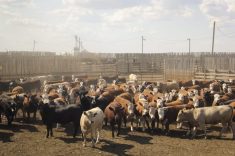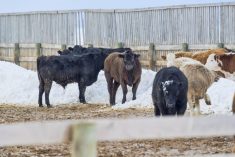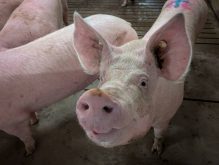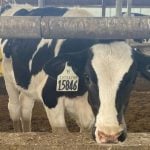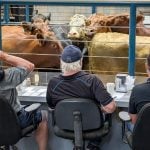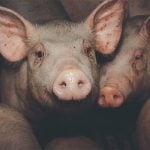A Manitoba cheesemaker is poised to be the first in Canada to offer a “Non-GMO Verified” cheese line, using milk from cows fed non-GMO crops.
Bothwell Cheese announced Tuesday it plans to be the first in the country to offer cheeses made with milk that comes from dairy farms verified by the Non-GMO Project, a U.S. initiative billing itself as “North America’s most trusted seal for GMO avoidance.”
Bothwell, which operates at New Bothwell, Man., about 20 km northwest of Steinbach, already distributes over 25 varieties of cheeses through national, regional and independent retailers.
Read Also
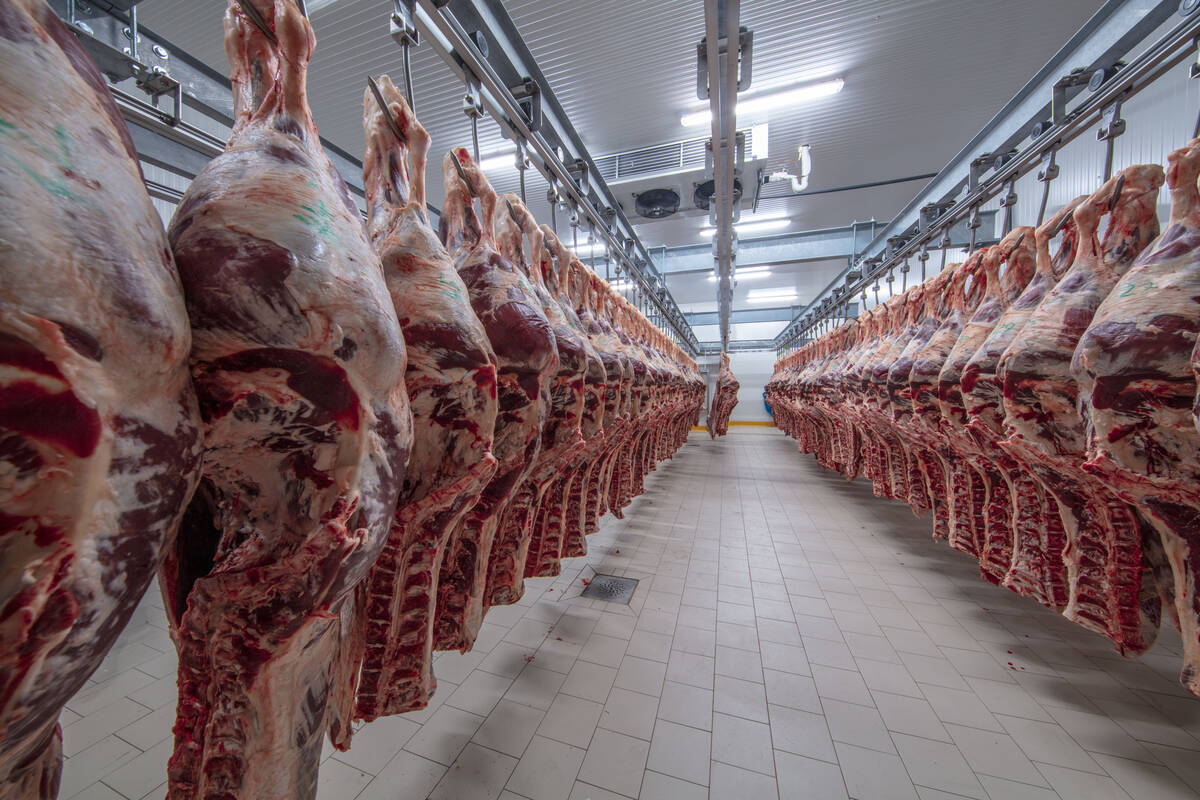
Argentina’s beef export revenue reaches record in 2025
Argentina’s beef export revenues hit a record $3.7 billion (C$5.0 billion) in 2025, up 22.3 per cent from the previous year, the country’s economy ministry said on Friday.
Bothwell Cheese’s new Non-GMO product line will be launched in 2017, the company said. On its website, the Non-GMO Project lists Bothwell as having a medium cheddar and medium white cheddar with the Non-GMO label.
“Bothwell Cheese has a long history of introducing innovations in cheese to provide customers with greater choice,” Bothwell president Kevin Thomson said in a release.
“Individuals and families are telling us they would like to be given more choice and we are proud to be able to offer this as an option.”
In its release, Bothwell cited a 2015 Ipsos Reid poll in which 88 per cent of Canadian respondents said they believe the federal government should mandate GMO labels on food.
The Non-GMO Project, based at Bellingham, Wash., north of Seattle, defines GMO as a “plant, animal, microorganism or other organism whose genetic makeup has been modified using recombinant DNA methods… gene modification or transgenic technology.”
On its website, the organization goes on to describe genetic modification as a “relatively new science (which) creates unstable combinations of plant, animal, bacterial and viral genes that do not occur in nature or through traditional crossbreeding methods.”
On one of its sites, the Non-GMO Project also states that “most developed nations do not consider GMOs to be safe” and adds that a “growing body of evidence connects GMOs with health problems, environmental damage and violation of farmers’ and consumers’ rights.”
In the U.S. and Canada, the organization says, “GMOs have been approved based on studies conducted by the same corporations that created them and profit from their sale.”
For a product to be Non-GMO Project Verified to the organization’s standards, its inputs must be evaluated for compliance and categorized into one of three risk levels: high risk, low risk or non-risk.
The Non-GMO Project Standard puts animal-derived products such as dairy, meat, eggs and honey in its “high risk” category, citing “the prevalence of GMOs in animal feed.”
The Non-GMO Project’s verification program is North America’s only third-party program for verifying a product’s ingredients, Bothwell said. The Non-GMO seal “gives shoppers the assurance that a product has completed comprehensive third-party verification for compliance with the Non-GMO Project Standard.”
Non-GMO Project Verified goods include over 39,000 products, representing $19.2 billion in annual sales, Bothwell said.
Products verified by the organization “are in demand and the Non-GMO Project Verified seal is the most trusted non-GMO label among consumers.”
Bothwell also noted Tuesday it has bought Notre Dame Creamery, which processes Notre Dame brand salted and unsalted butter, plus organic milk and organic kefir for the Organic Meadow brand, at Notre Dame de Lourdes, Man., about 65 km south of Portage la Prairie.
Notre Dame, which still operates at its original location, has been owned by the Roch family since 1964 and is now a federally inspected and organic certified processor. It products are sold through several chains and retail grocers in Winnipeg and rural Manitoba and used by several Winnipeg bakeries.
Notre Dame, which closed its sale to Bothwell at the end of October, bills itself as “one of the few remaining small-town creameries in Canada.” Financial terms of the sale weren’t released. — AGCanada.com Network





